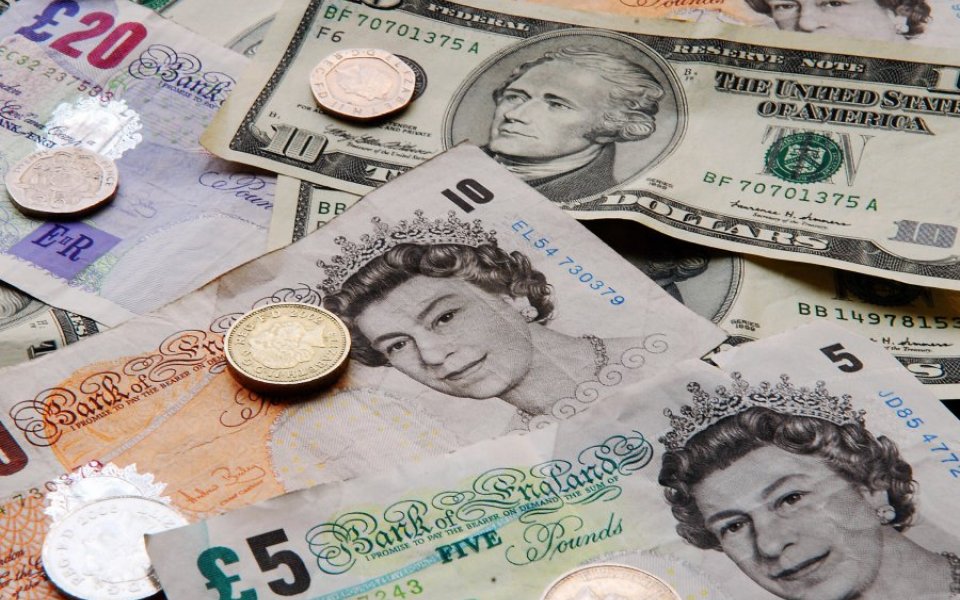By CNBC : A slightly more hawkish tone from Bank of England (BOE) Governor Mark Carney on Wednesday has prompted the U.K. currency to move back above the psychologically critical $1.30 mark in Thursday's session.
The inconsistent public messaging from a line-up of the central bank's policymakers since its last meeting in early June has caused U.K. assets to jump around in the past two weeks as an initial dovish bent from Governor Carney was offset by hawkish noises from retiring Monetary Policy Committee (MPC) member Kristin Forbes and the bank's Chief Economist, Andy Haldane.
It was, however, an apparent ramp-up in hawkish rhetoric from Governor Carney speaking again, this time at the European Central Bank (ECB) Forum in Sintra, Portugal on Wednesday that has caused U.K. markets to assign a greater probability to the possibility of a rise in interest rates this calendar year.
"As spare capacity erodes, the trade-off that the MPC must balance lessens, and, all else equal, its tolerance for above-target inflation falls," said Carney in comments swiftly jumped upon by traders.
"Some removal of monetary stimulus is likely to become necessary if the trade-off facing the MPC continues to lessen and the policy decision accordingly becomes more conventional," he added.
Yet, Vasileios Gkionakis, head of global FX strategy at UniCredit, believes that markets raced ahead of themselves with rates traders now assigning a more than 50 percent probability of a hike by year end. He argues that investors failed to pay heed to Carney's explicit condition for the withdrawal of stimulus being a continuing shrinkage of the trade-off between lower activity and higher inflation.
"With consumption growth remaining weak, Mr. Carney clearly implied that this trade-off would lessen only if business investment picked up and wage growth firmed. In our view, both are unlikely given ongoing economic and political uncertainty and signs that pay growth may decelerate further," contended Gkionakis in a note to clients on Thursday, adding that he maintained a bearish bias on sterling's mid-term prospects.
"We disagree with markets' interpretation that recent developments may have raised the possibility of a softer Brexit and the BoE is likely to hike soon. Near term, the GBP momentum that has been built may provide the exchange rate with some stabilization – or even further upside – but we think this sort of stabilization will be seriously challenged in the coming quarters," he predicted.
Yet after finishing stronger on Wednesday, sterling's upward trajectory carried on in Thursday's session with the currency breaching the important $1.30 level in early afternoon trade before slipping back to hover just shy of it later in the day.
In any case, the dissonance echoing around the BOE is unhelpful, according to former Fed official and current Northern Trust Chief Economist, Carl Tannenbaum.
"What that may provoke – and did in the United States – is that if you have one camp that's especially vocal the others may find the need to come out into public and before you know it you have the hawks and doves plucking at each other's feathers and the markets get very confused," Tannenbaum warned on CNBC's Squawk Box on Thursday.
Yet as a visitor to the U.K., the esteemed economist noted that if policymakers have indeed been trying to inject some optimism into U.K. consumers' attitudes, that would not be a misplaced objective.
"The sooner we can get a positive psychology back in the United Kingdom either through the negotiations or the tone of the MPC discussion, the better," he observed.
Sharing Tannenbaum's perception of current consumer psychology was Robin Bew, chief executive officer (CEO) of The Economist Intelligence Unit, speaking on CNBC's Squawk Box on Thursday.
"The vibe I'm getting is that people are becoming a bit more miserable, you can see that in the pushback against austerity…so the bank could be put in quite a difficult situation where inflation remains high but actually the real economy is quite sluggish going forward so I think it's actually much more nuanced in terms of where they're going to go," posited Bew, explaining why he also believes current market prices may be overstating the likelihood of a near-term interest rate rise.

Mixed messages from Bank of England confuse markets but push sterling above $1.30
29 Jun 2017 04:48 PM
Prices may be delayed by 5 seconds. Prices above are subject to our website terms and conditions. Prices are indicative only
© 2023 Equiti, All Rights Reserved